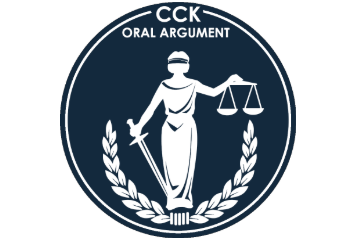Precedential Decision: Separate Evaluation for Left Knee Disability

CCK Law: Our Vital Role in Veterans Law
Summary of the Case
Mr. Lyles served on active duty in the United States Army from March of 1987 to July of 1990. During service, he injured his left knee and underwent a partial lateral meniscectomy with anterior cruciate ligament (ACL) reconstruction. Mr. Lyles first applied for service-connected compensation for his left knee disability in August of 1990. In February of 1991, he was granted service connection with an evaluation of 10 percent under Diagnostic Code (DC) 5257. His disability rating was later increased to 20 percent in March of 1996, and 30 percent in July of 1998. Subsequently, in April of 2001 Mr. Lyles filed another increased rating claim, but was denied. He appealed this denial all the way to the Court of Appeals for Veterans Claims (CAVC), which, in October of 2014, remanded the case back to the Board for readjudication. Ultimately, the Board continued to deny his claim.
Board denies separate evaluation for left knee disability
In January of 2016, the Board issued a decision denying an increased rating based on separate evaluations for Mr. Lyles’ left knee disability. The Board found that DC 5258 did not apply to Mr. Lyles’ claim because the evidence of record did not reflect dislocation of the semilunar cartilage. Instead, the Board determined that DC 5259 applied as there was evidence of the removal of semilunar cartilage. Nonetheless, the Board determined that a separate evaluation under DC 5259 was not warranted. While the Board acknowledged Mr. Lyles’ symptoms such as popping, locking, grinding, pain, swelling, looseness, and giving way or falling could be related to semilunar cartilage removal, it held that each of those symptoms was already encompassed by his current evaluation under DC’s 5257 and 5261. Specifically, the Board indicated that the above-mentioned manifestations of the Veteran’s left knee disability had been attributed to his instability and were the very symptoms that formed the basis for his 30 percent evaluation under DC 5257 and 5261. The Board concluded that a separate evaluation under DC 5258 or 5259 would constitute pyramiding.
CCK presents an oral argument at Court
CCK successfully appealed to the CAVC the Board decision that denied a separate evaluation for Mr. Lyles’ left knee disability. In August of 2017, CCK delivered an oral argument before the Court in Washington, D.C. CCK argued that the Board erred in finding that Mr. Lyles’ 30 percent evaluation under DC’s 5257 and 5261 encompassed all of the manifestations of his left knee disability, to include popping, locking, grinding, pain, and swelling. CCK asserted that the plain language of those DC’s reflects that he has not yet been compensated for the full extent of his left knee disability and that a separate evaluation under either DC 5258 or 5259 is necessary to adequately account for those unaddressed manifestations.
Court agrees with CCK’s arguments
CCK argued, and the Court agreed, that the evaluation of Mr. Lyles’ left knee disability under DC 5257 and 5261 does not preclude a separate evaluation under DC 5258 or 5259. This precedential decision puts forth that entitlement to a separate evaluation in a given case depends on whether the manifestations of disability for which a separate evaluation is being sought have already been compensated by an assigned evaluation under a different DC. The Court agrees that the Veteran’s symptoms could be compensated for under DC 5261, but the Board’s denial of a higher rating under that DC shows that was not the case here. Therefore, the Court reversed the Board’s finding that the all of the Veteran’s symptoms were compensated by his 30 percent evaluation under DC 5257 and 5261. Additionally, the Court remanded the matter of a separate evaluation for further development and readjudication consistent with its decision.
About the Author
Share this Post
